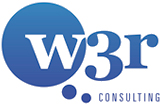Nurses have long been a cornerstone of attentive, high-quality care, but the last few years chipped away at a once deeply dedicated workforce. Yes, the pandemic was a pressure cooker, pushing healthcare professionals to their capacity. Yet even as occupancy dropped, nurses didn’t feel a corresponding sense of relief. In fact, the healthcare industry is experiencing a mass exodus of highly qualified nursing professionals.
A National Council of State Boards of Nursing (NCSBN) survey found as many as 100,000 nurses left the profession since the start of the COVID, leaving after long bouts with stress, insomnia, depression, burnout, and even PTSD. Even some tenured nurses chose early retirement rather than deal with the psychological burden.
Yet that’s just the beginning. As many as 610,388 registered nurses in the same survey said they planned on leaving the workforce by 2027 for similar reasons. Unsurprisingly, McKinsey suggests acute care facilities will be impacted most. Is this turnover inevitable or can your organization help to retain skilled and experienced nurses?
In our experience, healthcare systems and other institutions can combat these retention issues by pursuing a combination of workforce and healthcare IT solutions. Here are those making the most difference:
Attracting a Responsive Talent Pool
Burnout escalates all too easily. When nurses leave for other facilities or professions, their departure can trigger even more attrition, a stampede of people heading for the exit. Developing a robust and responsive backfilling process can stem the tide until you can address the upstream causes of burnout.
How do you fill an immediate shortage? In the current market, it’s best to work with a healthcare staffing company. Nurses are constantly bombarded with offers and opportunities, so an ordinary job posting is less likely to organically draw top talent your way. Urgent backfills or even stopgaps require nurses who are engaged in the talent funnel and ready to deploy. In a pinch, per diem RNs can hop into shifts to fill out your staffing coverage.
Even then, your business needs a long-term strategy. Essentially, you need to build a talent pool, having established relationships with talented nurses to approach at a moment’s notice. Juggling all those connections might be a challenge for the typical nurse manager or hospital administrator, but they aren’t as difficult for a dedicated recruiter.
Recruiters can take action to engage nurses when they’re ready for a change of scenery. They can reach out around each nurse’s schedule, stay attuned to their feelings, and make offers when the timing feels right. Additionally, they can use their wealth of trusted connections to develop a short list of referrals who have the potential to thrive in your organization. If you are ramping up for higher volume hiring (maybe it’s HEDIS measure season or you anticipate an increased census), recruiters can source, screen, and place experienced talent in a much more streamlined way.
Embracing Employee Retention Strategies
A little further upstream is a chance to explore employee retention strategies. For those nurses who are on the verge of burnout or in the early stages, there’s still time to alleviate some of their stress and boost their morale. However, healthcare systems need to take proactive measures.
Retention bonuses can help to keep experienced RN from moving elsewhere. The University of Maryland Medical System implemented a registered nurse retention program to encourage nurses to stay for a two-year period. The bonuses ranged from $5,000 to $25,000 (minus tax) depending on the registered nurse’s experience. Though this solution was implemented during the latter stages of the pandemic, rewarding your nurses for staying with your organization, in an era of prolonged burnout, can help keep them engaged.
Another way to retain nurses in an otherwise stressful environment is to provide them with proper training. A McKinsey survey found that on an ideal day, registered nurses wanted to spend 11% of their day involved in growth, development, and RN-to-RN teaching. Allocating more time and creating more opportunities for learning to happen can prevent nurses from going elsewhere.
Even how you help nurses to de-stress on a particularly tough day can provide advantages in the long run. In the past, we’ve outlined ways to recover from nurse burnout, but the long-term success in those strategies depends upon your investment in their self-care and mindfulness practices:
- Create check-ins to identify their stressors. Only with knowledge can you take action to alleviate undue sources of stress.
- Build a culture where people can draw boundaries. When your nurses are pushed too thin, they need to be able to exert control to avoid burnout.
- Provide resources for stress management. Whether offering access to counseling or stress management programs, you can deescalate stress and anxiety before they get too intense.
Enhancing Your IT Strategy
When McKinsey asked nurses how they want to spend their time on the job, they gave fairly predictable responses. On their ideal days, they’d engage with patients, mentor newer team members, and partake in their own professional growth. What did they want to do less of? Charting, hunting for supplies, or helping patients with the rudimentary elements of physical care (bathing, providing meals, etc.). In fact, nurses feel as if 15% of their time could be freed up by automating these tasks.
Tech enablement can help to alleviate sources or even activities that don’t give your nurses a sense of purpose. As digital systems have proliferated, nurses have grown frustrated with jumping between platforms and tools to handle the daily functions of their jobs. By automating repeatable tasks and workflows, your organization can help nurses focus on patient care and education. The seamlessness of patient care and administration can lighten the emotional load of your people.
However, there needs to be an exceptional foundation of data, one built on robust and effective data governance practices. Only by understanding the source, accuracy, sensitivity, and use of data can you create automations that offer greater efficiency and enhance operations for nurses, your facility, and your patients. Moreover, proper governance can help to maintain compliance within your organization and any chance that they unknowingly reveal or share PII.
Helping Nurses at Every Turn
Just like effective care, there’s not a single treatment that will fix everything. Your organization will need to communicate with your nurses to determine their level of burnout, their sources of stress, and your overall inefficiencies to find the specific fix. Yet if you dedicate the time and effort to diagnosis the problems now, you can prevent unexpected attrition down the road. That means continuous high-quality care from nurses who feel cared about.
Want help preventing burnout in nursing and enhancing your efficiency? Find out how w3r Consulting helps healthcare companies like yours to overcome workforce and business challenges.
Learn about how we serve healthcare companies
Related Articles
How to Lower Nursing Turnover and Retain Top Talent
How to Recover from Nurse Burnout: 4 Tips to Help You Recharge
Why You Don’t Have to Leave Nursing to Cut Your On-the-Job Stress


